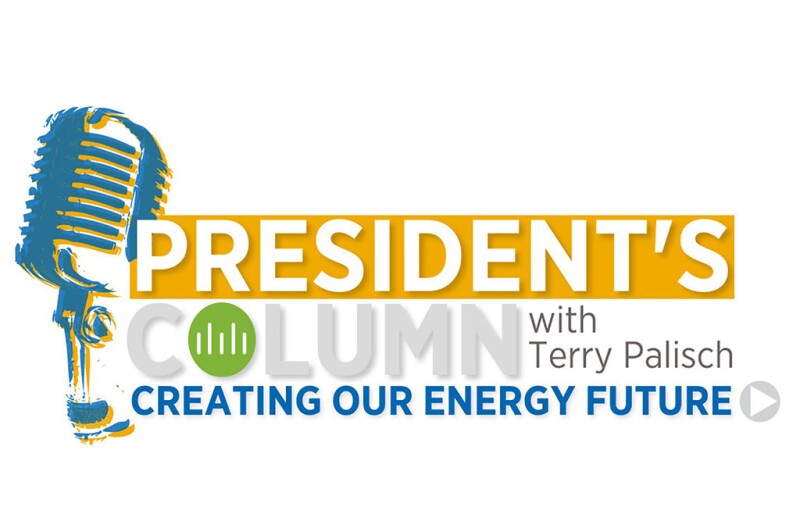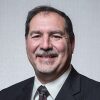In this episode and transcript, Terry Palisch is joined by Simeon Eburi, an SPE Regional Director of North America, to discuss connecting members to technology and each other, and the importance of local sections. This transcript is an excerpt from the podcast episode. Listen to the full episode here.
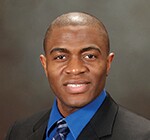
I’m Simeon Eburi, an SPE Regional Director of North America and reservoir management advisor with Chevron. I’m pleased to join SPE President Terry Palisch to talk about the benefit of joining and being involved with your local SPE section. Thank you for inviting me to join you. As a regional director, I’m passionate about the sections and the work they do, as I know you are, Terry.
Thank you, Simeon, for joining me today and being part of the episode. I asked you to join because I know your passion and your experience with the Gulf Coast Section, and my goal today is to ensure our members recognize how being active in their local section can help their professional development. I thought you would be the perfect host.
I believe that when most people, both members and external, think about SPE they typically think about the local section. That is what most are exposed to, so I consider the local section the front lines of our Society, the key to SPE’s mission of connecting. I want to focus our members on how they can benefit by connecting with their local section or student chapter because I think the local sections can impact not only their education and career but also their energy future.
I agree with you Terry, sections are the front lines. I was very involved with my local section in Houston before I was a regional director on the SPE Board of Directors. For people who do not know about SPE sections, let’s start there. What are sections and what do they do?
Let’s start with statistics. We have over 200 sections worldwide located in 85 countries, so wherever you are there should be a section near you. The first section was the Mid-Continent Section in Tulsa in 1917 over 100 years ago; it was established before SPE was incorporated. The first international section was about 40 years later, the Western Venezuela Section in Maracaibo. One of the most recent sections is the Ukraine Section in Kiev established in 2022.
We continue to add sections and at times reinstate sections that may have fallen behind. This year we reinstated the Libya Section and the Tunisia Section. Our sections are wide-ranging in size. The two largest sections are the Kingdom of Saudi Arabia and the Gulf Coast Section with well over 8,000 members. What is interesting is that the average SPE section size is over 300 and the median is under 150 which means we have a lot of sections that are smaller than 150 members, which illustrates the idea of the sections being grassroots. Each section operates independently and somewhat autonomously; they are local in their local area. Each is unique in that they respond to the needs of their members, providing technical exchange, networking opportunities, and engaging with the community. They really are the face of SPE at the local level.
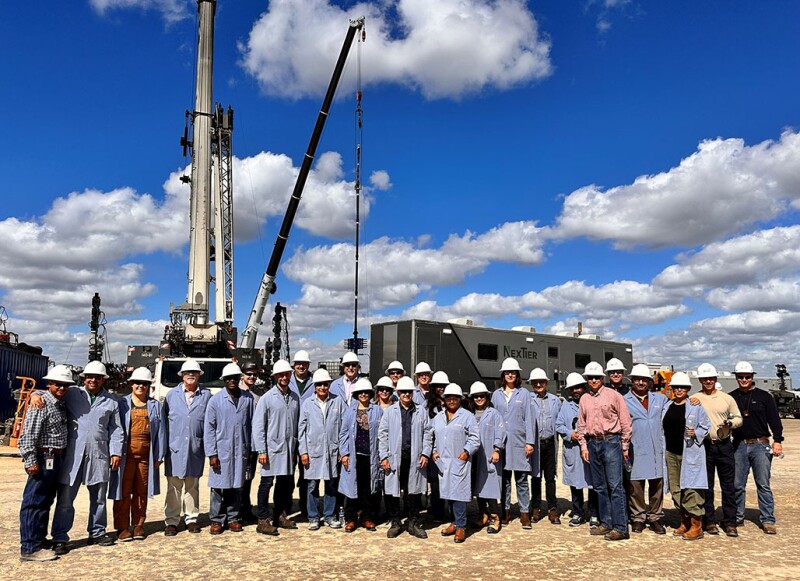
Thank you, Terry, for sharing these statistics about the global sections. I can see where the sections covering the globe are important for SPE’s mission. How are new sections created or established? Can anyone create a section around the world?
It is not too difficult. We encourage members in areas that are not being served by a local section to create a section. It takes a minimum of 25 professional members who reside in the geographic area to create a local section. They need a minimum of five board members including the chairperson, program chair, a membership chair, secretary, and treasurer.
Staying on the topic of sections, I heard you say that you visited quite a few sections and chapters around the world and that is one of your favorite things to do as president. Can you expand on that? Where have you been and why are they the heart of the mission of SPE?
I will take your second question first. I believe strongly that the section enables us to fulfill our mission of connecting our members. Our mission can be stated very simply as connecting our members to technology, connecting our members to other members, and connecting our members to external stakeholders. I think the SPE local section is at the heart of that. Sections connect members to technology through technical talks, they bring in speakers locally or from other areas including Distinguished Lecturers provided by SPE.
When it comes to connecting our members to other members, there are periodic meetings when the section gets together but they also have social and networking events, maybe a golf tournament or clay shoot to help members connect, network, and collaborate.
The one that I think is sometimes overlooked is the impact that our local sections have on external stakeholders. They do a tremendous amount of philanthropic work in their communities. I was looking through fiscal year 2022 and I added up contributions from our sections across the world. They gave over $1 million total in scholarship money to students. They support the local community in a wide variety of ways such as food banks, shelters, things like that; this is one of the reasons why I enjoy visiting the sections and student chapters. I get to meet the members who are in the trenches that are working hard for SPE and their local community. They are passionate about our society, passionate about SPE, but also passionate about our industry and that is contagious.
One of my first visits as incoming president was with the Ecuador Section where we celebrated their 30th anniversary as a section. It was a lot of fun to meet the local leadership, the Ministry of Energy, and some of the local companies. In February I attended the Oklahoma City Section Mardi Gras, a wonderful evening that raised funds for the local Boys Ranch. In September I was at the Aberdeen Section where they developed an interesting event in conjunction with Offshore Europe. The section put on a half-day seminar for local high school guidance counselors which explained the importance of our industry, future jobs, and the type of technologies people are going to have to support. This helped promote STEM programs and helped the counselors guide high school students to move toward our industry. Also, I went to the Tunisia Section for their reinstatement during an African Energy Security Summit. It was very well put together and they were excited about getting reestablished. Simeon, I could go on and on. You probably have more examples than I do, but I wish I could bottle the excitement and convey it to all our members in the industry.
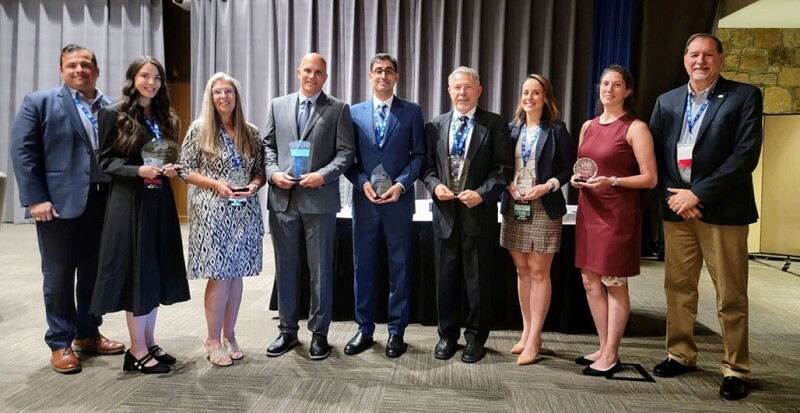
Very interesting, Terry. Thank you for sharing all the sections you visited, the impact those sections have on their local community, and the passion that you can clearly see and feel from visiting those sections. SPE, to me, feels like a big family. When talking with members across the world, you feel that common ground in the SPE membership. Tell me a bit more about your SPE membership. You have been an SPE member for over 40 years. What made you join SPE and when did you make the decision to volunteer?
When you talk to most members, they credit their involvement and leadership with SPE sections as instrumental in their careers. Your involvement in the Gulf Coast Section is very similar to mine, and I am sure you have similar stories. Like most, I joined SPE when I was in college.
I joined a student chapter at the time because I wanted to get something on my resume and ultimately get a job. As I entered the professional ranks, what I got out of SPE and the local section has evolved. Initially I would call myself an ‘attender;’ I attended local section meetings whenever the topic was something I thought would help me in my job. I might go to a golf tournament or some social networking event and have some fun.
When I moved from ARCO to CARBO, I began to change my focus because I realized the benefits of networking—looking for potential clients and educating people on what our company did. I decided that I was going to start attending all the local meetings and events because I wanted the network, and I met so many more people, it was just amazing. This is when I started volunteering, I did not set out one day and say I am going to volunteer.
My first volunteer work happened because somebody asked me to. Two things happened at the same time. At the local section, Danny Bell, who was the education committee chair, asked me if I would serve on that committee. Eventually, I was asked to serve as a program chair and then finally as the section chair. At the same time, I was asked by Carl Montgomery to serve on the Drilling and Completions Award Committee which was an international committee.
As I began participating more, more people were asking me to volunteer and fortunately, I said yes. I think many times we tend to say no because we are not sure we have time, but for me it has been time well spent. For me personally, this is also where I began developing leadership skills. Leading the Dallas Section, leading some of the committees, leading ATCE—all those things continue to feed off each other. One of the things I always like to tell students and young members is that I was a leader in the Dallas Section long before I was the vice president of CARBO. Certainly the professional soft skills work is what drove a lot of my success outside of SPE.
I like that, Terry. I know we share some of the same ideas about volunteering. Someone has to ask you and then of course the answer is yes; that makes a perfect match. I will share my side, a similar SPE journey. I joined in college as well for the same reasons I think you joined. After that I became involved with the Gulf Coast Section as a young professional member chairing the Young Professionals Committee and the Education Committee and eventually chaired the section that led me to become a regional director and board member at the SPE level. You mentioned leadership skills and soft skills, I know a lot of people connect SPE with technical knowledge, technical dissemination. It is easy to make the connection with the technical side of this whether it is the drilling study group or the completion study group that is linked directly to your career, but what about other skills? Can you share one or two examples of leadership skills and soft skills that you developed while participating in your local section or in SPE in general, and how have those skills helped you professionally and throughout the rest of your journey in SPE?
I agree 100% that a lot of people think of SPE as technical dissemination, but I think some tend to forget about their soft skills. We are engineers, we like to work problems and be technical, but soft skills are a huge part of your professional learning. For me personally, I began writing papers back in the mid-90s after I was in the industry for about 10 years. I wrote several papers by the time I made it to the Dallas Section. The Dallas Section chair asked me to educate our local section on how to write papers and abstracts. I developed a half-day seminar to explain the process, how to write the abstract, and how to get it accepted. I also gave that talk at a Gulf Coast Section meeting and now it is a training that is given in conjunction with ATCE every year; I just gave it this past October.
I did not set out to hone a soft skill but writing those papers and presenting led to teaching me how to assemble a training class, taught me how to present and work interactively with the students in the class. From a soft skills standpoint, it was amazing. Maybe I will give another course on the leadership side. Serving on the Dallas Section Board certainly taught me how to lead a volunteer or a group of volunteers who are not being paid to do what they do, which is different from leading at work. It takes some additional skills. You can learn how to motivate a team and how to strive together for a common goal. The Dallas Section’s goal was to win the SPE Presidential Award for Outstanding Section. I think that is a goal for a lot of sections, but in the end, it turned into leadership skills that I transferred immediately over to my work with CARBO. Those are two examples of how I think soft skills or leadership skills can be developed through your involvement with SPE and the local section.
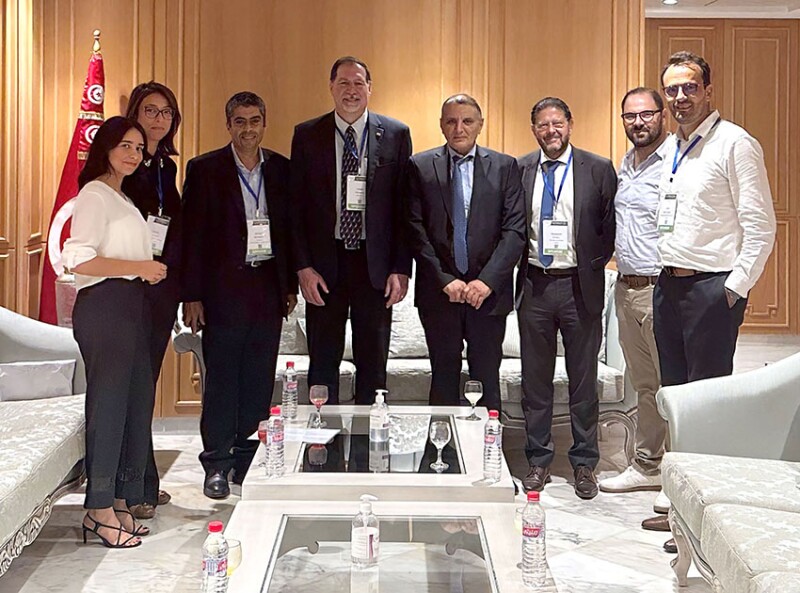
That is great, Terry. I completely agree about the soft skills and leadership skills examples you shared because it is different, it is about influential leadership. We do not have a performance review responsibility or bonus authority, so you do focus on shared common goals for the section, for your committee, and I think you said that very well. I am going to move on to another aspect that I want you to expand on. One of the analogies you like to use and highlighted in some of your previous podcasts is the gym membership vs. SPE membership. What specific sectional programs do you think benefit young professionals or those seeking professional development?
I just love the gym membership analogy because the more you put into that gym membership, the more you get out of it. SPE membership is the same way: The more you put in, the more you get out. I think that students and young professionals need to take care of four important items to create their energy future and their future in our industry. Members need to learn, to participate, to volunteer, and then lead. I think sections provide opportunities for all four.
First, you should engage in lifelong learning. I know that is a cliché, but technology is changing so fast in our industry that you have to continue to learn to keep up. Again, the sections put on technical talks, SPE provides two Distinguished Lecturers every year to each section who are experts in our industry that come from all over the globe so you can build local technical skills and broaden your horizons.
Second is participating. You should participate somewhere, and I think that the local section provides the opportunity to network and to collaborate. We are not going to solve our problems in a vacuum, we need to be able to collaborate with others. I have heard many people who have gotten their next job by networking at the local section. I cannot overemphasize the networking and collaboration side.
Third is volunteering. It teaches you how to work with others for a common purpose which can be done at the section level. The section develops not only technical events, but also events for the community that provide not just professional fulfillment but also personal fulfillment. This is one of the ways we can put a positive light on our industry.
Fourth is that if you do all those things, somebody is going to ask you to lead something, and I want to encourage you to say yes. The sections run themselves: They have their own leadership, their own bank accounts, their own events that you work together on and lead at the section level.
Learning, participating, volunteering, and leading at the local section opened numerous doors of opportunity for me and will for you if you put the time and effort into it like you would the gym membership. One of the things I always encourage students to do when they get their first job is to join your local section, because if you do that you are on your way to creating your energy future.
This is very important for students, young professionals, and section members to know. I think you describe the volunteering value well. This is the image of SPE, and the work the sections do in the communities is very impactful. I remember my first University of Houston volunteering event. I planted trees at the Houston Arboretum. It was a selfless act to just do something for the betterment of the environment and for the city that I am in, and I think that’s an example of how most people can probably find many opportunities in their section to volunteer. Terry, it was great to talk to you today. What are you planning to talk about next month?
First, I want to do a quick reminder for the awards. The portal is open for nominating your colleagues for regional and international awards. I encourage everybody to nominate well-deserving colleagues to recognize their work in the industry and for their service.
Next month I want to move on from the regional sections to the technical sections. A lot of people do not understand the technical sections so I will dive a little deeper into how SPE can help us collaborate on a more global level via our technical sections.
Simeon, I really appreciate you taking the time to be a part of the podcast this month, and I want to thank you not only for your service on the board but also all your involvement with the Gulf Coast Section. You are a good example of someone who is creating their energy future, so thank you very much.

